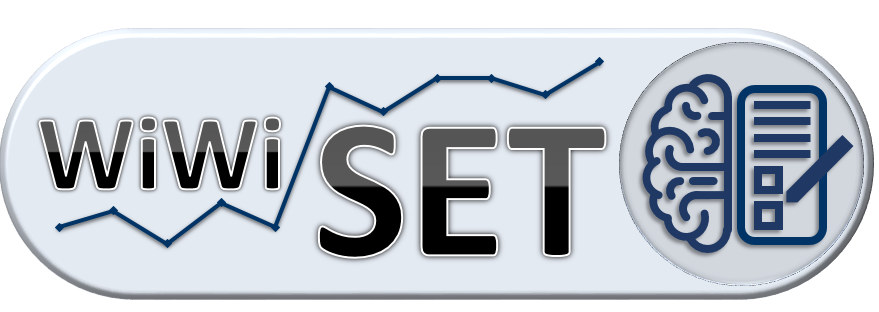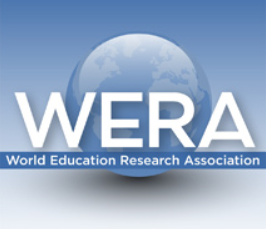Nagel, M., Schlax, J., Zlatkin-Troitschanskaia, O., Jitomirski, J., Kühling-Thees, C., Happ, R. (2019, August). Influence of Attended Courses on Domain-specific knowledge Growth in Higher Education Economics. Präsentation auf der 18. Biennale-Konferenz der „European Association for Research on Learning and Instruction”, Aachen, Deutschland.


Abstract: The presented longitudinal study investigates the development of students’ economic knowledge over the course of studies and the influence of learning opportunities as well as further potential personal influencing factors. For this purpose, the results of students of business and economics in an economic knowledge test at the beginning of their studies and one year later are examined. Overall, there is a positive change in the economic knowledge of students. Regression analyses indicate that attending courses in business and microeconomics exert a significant influence on the development of economic knowledge, as do high school leaving grade and the student’s main communication language. No influence, however, can be found for other attended lectures/courses, nor fluid intelligence.
Pant, H. A., Jitomirski, J., Kühling-Thees, C., Zlatkin-Troitschanskaia, O., Schlax, J., Happ, R. & Nagel, M. (2019, August). Influence of Media Consumption during Studies on University Dropout Rates. Präsentation auf der 18. Biennale-Konferenz der „European Association for Research on Learning and Instruction”, Aachen, Deutschland.

 Abstract: The present study investigates the media consumption of first-year students and the relationship to them dropping out or changing their study subject. The study focuses on business and economics (B&E) as the most studied subject worldwide. Additionally, many B&E-related topics are frequently addressed in news coverage. A Germany-wide large-scale pre-post-measurement with a subsample of 709 participants was used for the presented results. Of those, 620 students self-reported continuing their B&E studies, while 89 dropped out of university completely or changed their study subject after the first study year. The results compare the consumption of and trust in media of those two groups. The findings suggest that dropouts and subject changers consumed course materials (textbooks, lecture notes) less frequently when preparing for courses and/or exams and showed less trust in them. This effect was supported even when controlling for interest in B&E topics additionally impacting exam preparation. These findings show a discrepancy between subjectively felt interest of students who drop out or change their study subject and their actual frequency of gathering information about B&E. The results highlight the importance of educational institutions providing students with services that bridge the gap between subjective interest and actual knowledge about the subject.
Abstract: The present study investigates the media consumption of first-year students and the relationship to them dropping out or changing their study subject. The study focuses on business and economics (B&E) as the most studied subject worldwide. Additionally, many B&E-related topics are frequently addressed in news coverage. A Germany-wide large-scale pre-post-measurement with a subsample of 709 participants was used for the presented results. Of those, 620 students self-reported continuing their B&E studies, while 89 dropped out of university completely or changed their study subject after the first study year. The results compare the consumption of and trust in media of those two groups. The findings suggest that dropouts and subject changers consumed course materials (textbooks, lecture notes) less frequently when preparing for courses and/or exams and showed less trust in them. This effect was supported even when controlling for interest in B&E topics additionally impacting exam preparation. These findings show a discrepancy between subjectively felt interest of students who drop out or change their study subject and their actual frequency of gathering information about B&E. The results highlight the importance of educational institutions providing students with services that bridge the gap between subjective interest and actual knowledge about the subject.
Schlax, J., Nagel, M., Zlatkin-Troitschanskaia, O., Kühling-Thees, C. & Walstad, W. (2019, August). A Cross-national Comparison of Gender and Language Effects on Higher Education Students` Economic Knowledge in the U.S. and Germany. Präsentation auf der Fokuskonferenz des „World Education Research Association”, Tokio, Japan.



Abstract:
Increased heterogeneity among higher education students requires a reevaluation of common testing practices in higher education. Differences in students’ test performance related to language and gender have been found in large-scale assessments in economics in different countries. Possible influencing factors are previous knowledge and education, which scarcely have been investigated so far. Especially with a cross-national perspective, there are only few previous studies. Therefore, the present study aims to examine (1) the language and gender-related effects in the U.S. and Germany in a more in-depth approach and (2) which other factors at the individual level (such as previous education) could explain these differences. The assessment used the U.S. Test of Economic Literacy (TEL IV) and its adapted and validated German version. The analyses are based on a comparable student sample of economics students from the U.S. (N=4,276) and from Germany (N= 7,664).The present study examines language and gender effects. At the same time, interesting differences can be observed at the country level, individual level, and item level. With regard to research focus 1, we present the results from analyses of measurement invariance and DIFs. With regard to research focus 2, we show findings from multiple regression analyses and multilevel analyses with different predictors at the country level, individual level, and item level. We close by critically discussing the results and identifying aspects that require further research.
Schlax, J., Nagel, M., Zlatkin-Troitschanskaia, O., Kühling-Thees, C., Yamaoka, M., Asano, T., Abe, S. & Walstad, W. (2019 August). Valid Assessment of Higher Education Students` Economic Knowledge and Understanding Using the Adapted US-American Test of Economic Literacy – Comparing Effects of Prior Education, Native Language and Gender between Germany and Japan. Präsentation auf der Fokuskonferenz des „World Education Research Association”, Tokio, Japan.



Abstract:
Valid assessment of university students’ economic knowledge and understanding has become an increasingly important research area within and across countries. Previous analyses based on adapted and validated versions of the Test of Understanding in College Economics (TUCE IV) point to significant differences in terms of domain-specific knowledge and understanding in economics depending on the students’ mother tongue and gender for both Japan and Germany. However, so far, there is a lack of empirically sound explanations for these differences. In particular, previous knowledge and education as possible influencing factors have scarcely been investigated. Based on this previous research, the present study assesses students’ previous knowledge in economics using the Test of Economic Literacy (TEL IV). We examine whether we can identify similar language and gender-related effects with regard to the students’ previous economic knowledge and which other factors at the individual level (such as previous education) could explain these differences. The analyses are based on a sample of economics students in Japan and Germany at the beginning of their studies. In this study, the previous results conducted using TUCE IV are replicated; at the same time, interesting differences can be observed at the national level, individual level, and item level. The results indicate that differences in terms of economics understanding already start developing in previous (school) education and continue to do so over the course of university education. Limitations of the study and far-reaching implications will be discussed.
Yamada, R., Shirakawa, Y., Zlatkin-Troitschanskaia, O., & Kühling-Thees, C. (2019, August). A Cross-national Study of Direct and Indirect Competency Assessment of German and Japanese University Students: Comparison of Disciplinary Knowledge Tests and Students’ Self-reports. Presentation at the Focal Meeting of the World Education Research Association on August 8th 2019. Tokyo (Japan).


Abstract:
Higher education students are expected to develop 21st century disciplinary and generic skills. In the last decades, there has been a growing demand for objective, reliable and valid assessments of these skills. In this context, there have been discussions on whether there is any correlation between subjective and objective assessments of students’ learning outcomes. This question has been a central inquiry in higher education. The majority of research on students’ learning outcomes has been carried out within individual countries. To overcome this shortcoming, we conducted a German-Japanese collaborative project (2017-2018) to investigate the similarities and differences between the two countries when modeling and assessing 21st century disciplinary and generic skills as key student learning outcomes. The purpose of this study is to investigate 1) whether there is any correlation between the self-reported (indirect) assessment and an objective disciplinary knowledge test (direct assessment) and 2) whether there are any similarities and differences between the two countries when analyzing self-reported assessments and the disciplinary knowledge test. Cross-national surveys including a self-reported assessment and an economic knowledge test were conducted through WEB for German and Japanese students in 2017. The findings show that the higher a student’s self-reported academic progress, the higher the probability that the student will give correct answers to questions on the economic knowledge test. This result is consistent with the theory that subjective and objective assessments positively correlate as Pascarella & Terenzini (2005) claimed.